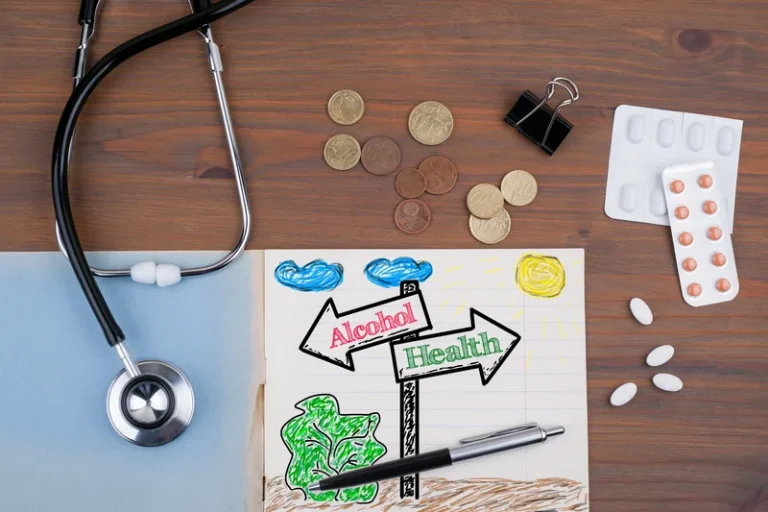
Such cognitive-behavioral therapies include operant conditioning, contingency management or coping skills training (Witkiewitz et al., 2019). Such feelings can include celebratory feelings, passion, and excitement. Granted these feelings are positive, they https://ecosoberhouse.com/ can easily trigger relapses. For example, most celebrations involve substance use among-st friends and family. Therefore, if you’re in a drug and alcohol recovery stage, this environment can inspire you to feel celebratory and want to participate.

What Are Relapse Triggers?
Triggers are social, environmental or emotional situations that remind people in recovery of their past drug or alcohol use. While triggers do not force a person to use drugs, they increase the likelihood of drug use. The National Institute on Drug Abuse (NIDA) reports that 40 to 60 percent of people treated for substance use disorders relapse. A significant amount of people struggling with substance abuse find it difficult to resist relapse triggers. The negative side effects of relapsing after enrolling in drug and alcohol recovery programs is another concern. In recent experiences, drug and alcohol abuse after practicing abstinence, heightens an individuals chances of overdosing.
- The solution to managing difficult situations is learning how to confront them without drugs and alcohol.
- They are external factors or situations that remind one of past behaviors.
- An internal trigger is something going on inside our minds or bodies that promotes the urge to relapse.
Coping Strategies for Relapse Triggers
To identify what things could be triggers, a good place to start is making a list of people, places, and things that were prevalent in active addiction. People can have a sponsor, sober support, or therapist help them create a list. Once a list is made, the next thing to do is to decide internal vs external triggers what boundaries need to be set. They can be a wide range of things, such as a social situation to something shown in a movie. External triggers often happen in situations you can remove yourself from, but that doesn’t make them any less difficult to deal with, nor is it always the case.
Prescription Drug Addiction Facts and Statistics
Interpersonal relationships are not only a huge component of mental health, but also very important to overcoming the isolation of trauma and PTSD. Whether trigger warnings are helpful or harmful is a subject of debate. Some use trigger warnings to give students time to physically or mentally prepare for potentially distressing subject matter, such as physical or sexual violence.

Of special interest is the role of the so called “Big Five” personality traits in the risk for drug addiction (Andreassen et al., 2013). To cope with internal triggers, developing a sober support system is extremely valuable. By attending any kind of twelve-step meetings such as Alcoholics Anonymous or Narcotics Anonymous, people will be able to form healthy relationships with others who are in recovery and have more time clean and sober. Being able to talk to someone who has experience dealing with triggers personally is one of the best resources to have. Internal triggers are thoughts and emotions that can cause cravings to use.
- Asking the right questions and taking the correct steps can enable people in recovery to healthily transition to their normal life without risking a relapse.
- When setting out on the path towards recovery, people often do everything in their power to avoid relapse.
- This can be anything from certain social situations, responsibilities, and even specific places that trigger your desire to use again.
- The brain registers these stimuli and processes them in the same areas involved in drug-seeking behavior.
Practicing gratitude is a key component of living abundantly in recovery. If you can find alternative routes to your next destination, try to map out your drive. McGeehan points to a 2013 review of more than 200 studies that found mindfulness-based therapy effectively reduces anxiety, depression, and stress. The behavior that emerges after a trigger can range from relatively minimal (crying) to serious (acts of violence). Someone exposed to a trigger may experience impaired judgment or awareness.
Finding a therapist can take some time, but some recovery programs can help set you up with a therapist to begin working with. If you need support in the meantime, we recommend that individuals in recovery work with Peer Recovery Specialists (PRSs). PRSs provide resources that can help you get started on your recovery and are incredible advocates for their clients. Maintaining relationships with people who are still in the midst of active addiction, or who abuse substances regularly can be triggering and harmful to a person’s recovery. Setting boundaries with these people can help remove the possibility of being triggered or pressured to use drugs or drink again. The person in recovery will also need to set boundaries for themselves, for places they will not go to or events they won’t attend.

Staying Grounded: Managing Triggers in Addiction Recovery
Addiction relapse triggers can be arbitrary, though generally correlated in some form to previous drug use. Working to identify, avoid and modify your triggers will help reduce cravings and urges to restart substance use and help establish longer periods of recovery. It’s understandable to be concerned about relapse after completing a substance abuse treatment program. Triggers may seem to be everywhere, and you might want to isolate yourself to avoid them. These triggers are thoughts or emotions that make you want to use drugs.
Like substance use disorder, triggers are most effectively responded to on an individualized basis. For many triggers, it can be helpful to discuss the emotional response it generates and how that leads to substance misuse. This deepened understanding can help someone realize when they’re being triggered and take necessary steps to stop it. In the context of mental illness, “trigger” is often used to mean something that brings on or worsens symptoms. This often happens to people with a history of trauma or who are recovering from mental illness, self-harm, addiction, and/or eating disorders. When someone has a history of any of these issues, being unexpectedly exposed to imagery or content that deals with that history can cause harm or relapse.

Every one of our team members is certified to address and effectively treat the issues that come along with addiction. Often a place may trigger a memory of an event, or smelling something, such as a particular cologne, may trigger your memory of a loved relative. The way that the brain links memories is a powerful tool that is used to help you recall important information, but that may also affect your recovery process.

Leave a Reply